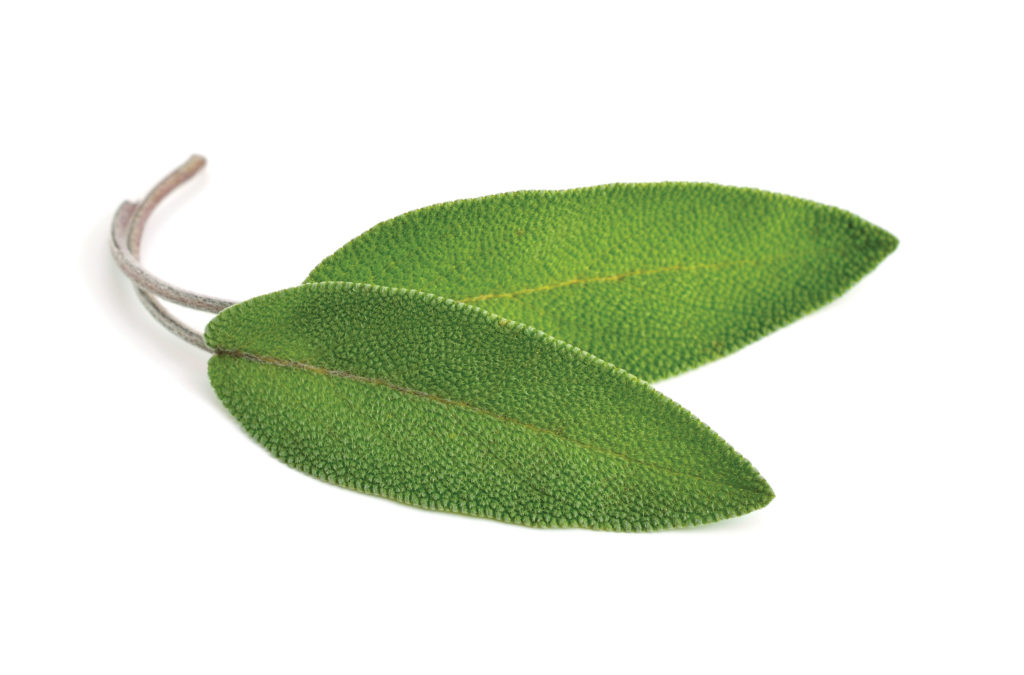Advertisement
Sage Is More Than a Culinary Herb
Research continues to find promising medicinal benefits

In ancient times, sage was considered a panacea, or cure-all. During its career as a medicinal, it has been employed in a wide variety of uses, from acting as a diuretic and improving fertility in women to “warding off evil.”
Today, sage is most commonly used as a treatment for sore throats and, more particularly, for menopausal sweating.
Sage’s bountiful benefits
In topical applications, sage is used to soothe inflammation of mucous membranes and tonsils and to help improve wound healing, including the treatment of cold sores. Orally, it’s used to help reduce excessive perspiration and aid digestion.
Sage’s reputation as a brain tonic was long dismissed, but recently, its beneficial effect on Alzheimer’s disease has been demonstrated in several published studies.
The botanical name Salvia is from the Latin “to save or be well” as in the word “salvation.” For women who suffer from premenopausal or menopausal hot flashes and night sweats, this beautiful purple flower could not have been named more appropriately.
Constituents of sage
Sage leaves contain tannins, bitter principles (diterpenes), steroids, flavonoids, and a volatile oil rich in terpenes (thujone, camphor, etc.).
Sage is recognized for its carminative (relieving flatulence), antispasmodic, anti-inflammatory, astringent, and antimicrobial properties. The antispasmodic and astringent effects may explain its usefulness against excessive perspiration and hot flashes.
Selecting the best sage
When it comes to using sage as a treatment for hot flashes, night sweats, or excessive sweating (both women and men), keep the following three factors in mind when selecting your natural health product.
Less is more
Go with a single-ingredient product (sage alone). Many combination remedies, although they may seem ideal for treating multiple symptoms, might not contain the best dosage for optimal relief, particularly for people with acute symptoms.
Fresh is best
Preparations made from fresh plants contain a significantly higher concentration of active ingredients than those from dried plant extracts.
Backed by science
Look for a product from a manufacturer that provides clinical research to support its treatment.
As with all medicinal preparations, you should also consult your health care practitioner for advice on the best options and dosages for your particular needs.





